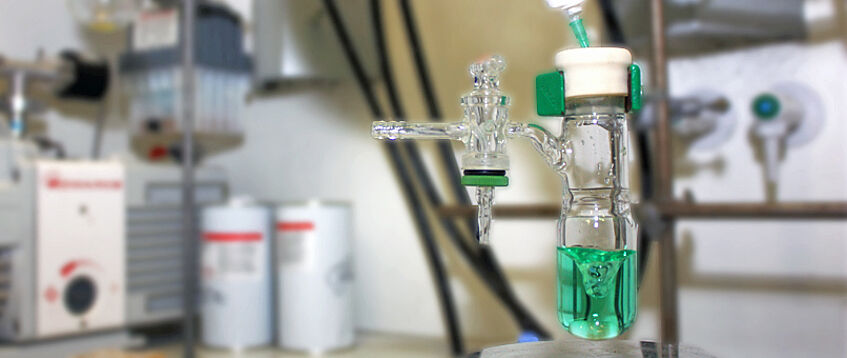Synthesis and Catalysis

Synthesis of new molecules in the laboratory (Copyright: Giovanni di Mauro)
Chemistry is a science that has continually created its own objects of research. This specific property is used constantly, both in nature and in modern chemical industry, and is based on the deliberate combination of atoms by means of chemical synthesis.
The researchers at the Faculty of Chemistry specifically investigate the synthesis and chemical reactivity of bioactive molecules, which includes the development of new methods, customised chemical transformations, as well as the efficient optimisation of existing chemical processes.
Specific importance is attached to the synthesis, modification and structural analysis of natural products such as hydrocarbons, macrolides, peptides and proteins, which permits applications of social relevance in industry, the life sciences and medicine. As many of these compounds are chiral, stereo-selective methods of synthesis have to be developed which ensure a precise three-dimensional arrangement of the molecule’s atoms. In addition, atom-efficient chemical reactions are used in these systems in order to find ecologically improved ways of synthesis. The catalysis of chemical reactions plays an important role in this context, as many chemical transformations would not be possible without the use of catalysts. New catalytic transformations can replace conventional reaction sequences over several stages, and the ensuing waste materials (reagents, solvents, by-products) can often be reduced considerably.
